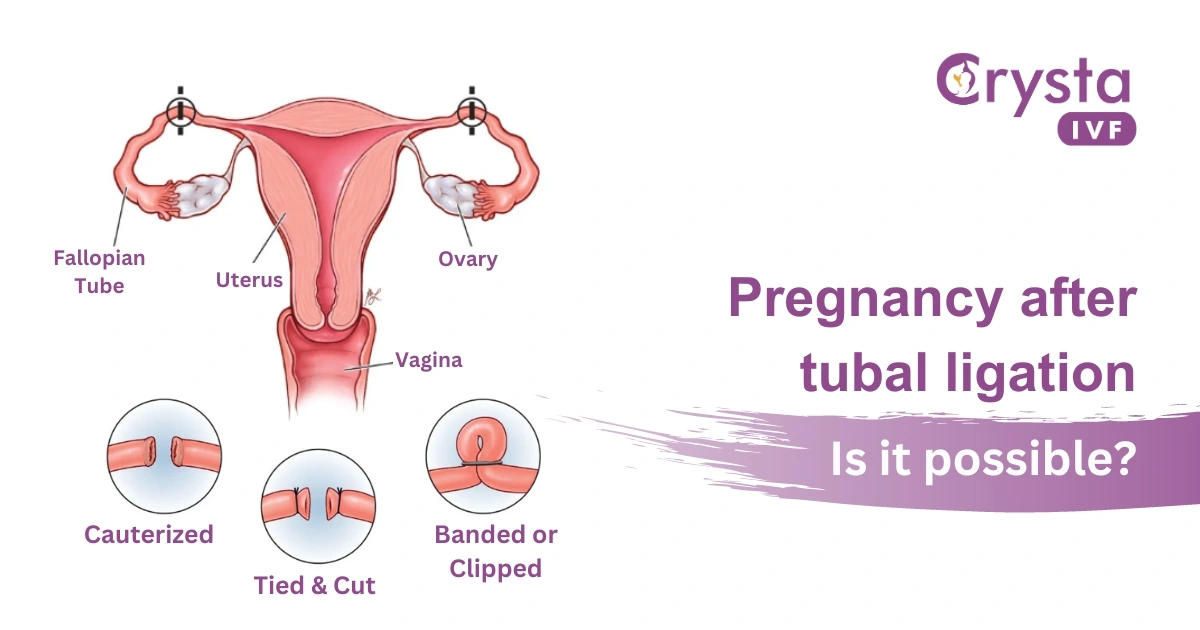What happens to a woman after tubal ligation?
Tubal ligation is a surgical procedure that permanently prevents pregnancy by blocking the fallopian tubes. While it's a highly effective method of birth control, it's important to understand what to expect after the procedure.
Immediate Effects
Physical Recovery: Tubal ligation is minimally invasive, so physical recovery is generally quick. However, you may experience discomfort, bloating, or bleeding for a few days.
Hormonal Changes: The procedure itself does not directly affect your hormones. However, if you were using hormonal birth control before the procedure, you may need to adjust your contraceptive methods.
Long-Term Effects
No Pregnancy: The most significant effect of tubal ligation is that you will no longer be able to become pregnant. This is a permanent decision, so it's crucial to be certain about your family planning goals before undergoing the procedure.
Menstrual Cycle: Your menstrual cycle should remain relatively unchanged after tubal ligation. You may still experience menstrual cramps or other symptoms associated with your period.
Sexual Function: Tubal ligation does not affect your sexual desire, pleasure, or ability to have intercourse.
Tubal Ligation Side Effects
While tubal ligation is generally safe and effective, some women may experience tubal ligation side effects or complications. These can include:
Infection: There is a risk of infection after any surgical procedure, including tubal ligation.
Internal Bleeding: In rare cases, internal bleeding can occur after the procedure.
Ectopic Pregnancy: If one of the fallopian tubes becomes partially blocked, there is a small risk of an ectopic pregnancy, where a fertilized egg implants outside the uterus.
Regret: Some women may later regret their decision to have tubal ligation. If you're considering the procedure, it's important to weigh the pros and cons carefully.
Reversal
While tubal ligation is generally considered permanent, there are surgical procedures available to reverse it. However, these procedures are complex and have lower success rates compared to the original tubal ligation.
If you're considering tubal ligation, it's essential to discuss the procedure with your healthcare provider to ensure it's the right choice for you. They can provide more information about the potential benefits, risks, and alternatives.
Visit:
https://crystaivf.com/blogs/can-pregnancy-occur-after-tubal-ligation/
What happens to a woman after tubal ligation?
Tubal ligation is a surgical procedure that permanently prevents pregnancy by blocking the fallopian tubes. While it's a highly effective method of birth control, it's important to understand what to expect after the procedure.
Immediate Effects
Physical Recovery: Tubal ligation is minimally invasive, so physical recovery is generally quick. However, you may experience discomfort, bloating, or bleeding for a few days.
Hormonal Changes: The procedure itself does not directly affect your hormones. However, if you were using hormonal birth control before the procedure, you may need to adjust your contraceptive methods.
Long-Term Effects
No Pregnancy: The most significant effect of tubal ligation is that you will no longer be able to become pregnant. This is a permanent decision, so it's crucial to be certain about your family planning goals before undergoing the procedure.
Menstrual Cycle: Your menstrual cycle should remain relatively unchanged after tubal ligation. You may still experience menstrual cramps or other symptoms associated with your period.
Sexual Function: Tubal ligation does not affect your sexual desire, pleasure, or ability to have intercourse.
Tubal Ligation Side Effects
While tubal ligation is generally safe and effective, some women may experience tubal ligation side effects or complications. These can include:
Infection: There is a risk of infection after any surgical procedure, including tubal ligation.
Internal Bleeding: In rare cases, internal bleeding can occur after the procedure.
Ectopic Pregnancy: If one of the fallopian tubes becomes partially blocked, there is a small risk of an ectopic pregnancy, where a fertilized egg implants outside the uterus.
Regret: Some women may later regret their decision to have tubal ligation. If you're considering the procedure, it's important to weigh the pros and cons carefully.
Reversal
While tubal ligation is generally considered permanent, there are surgical procedures available to reverse it. However, these procedures are complex and have lower success rates compared to the original tubal ligation.
If you're considering tubal ligation, it's essential to discuss the procedure with your healthcare provider to ensure it's the right choice for you. They can provide more information about the potential benefits, risks, and alternatives.
Visit: https://crystaivf.com/blogs/can-pregnancy-occur-after-tubal-ligation/









